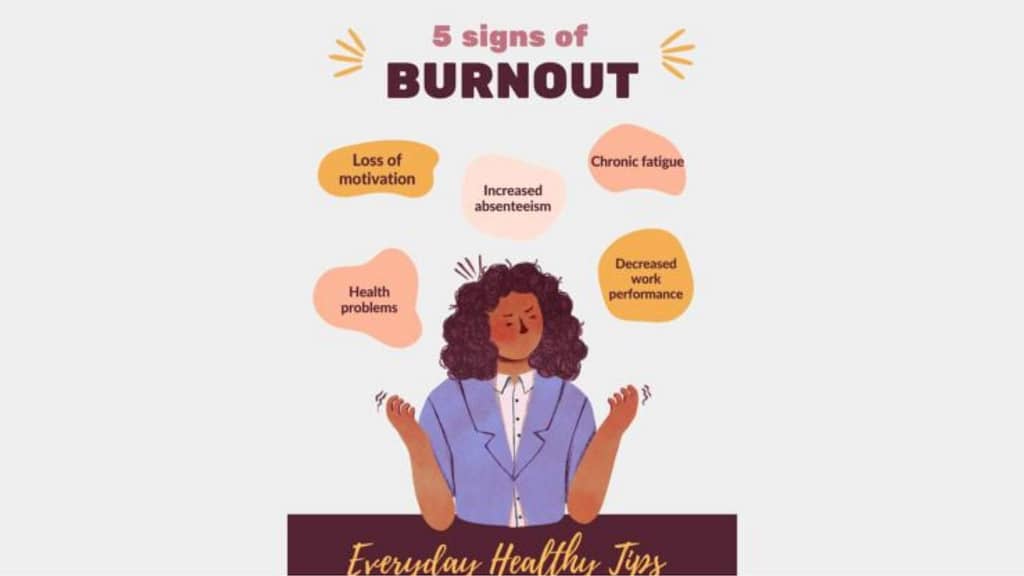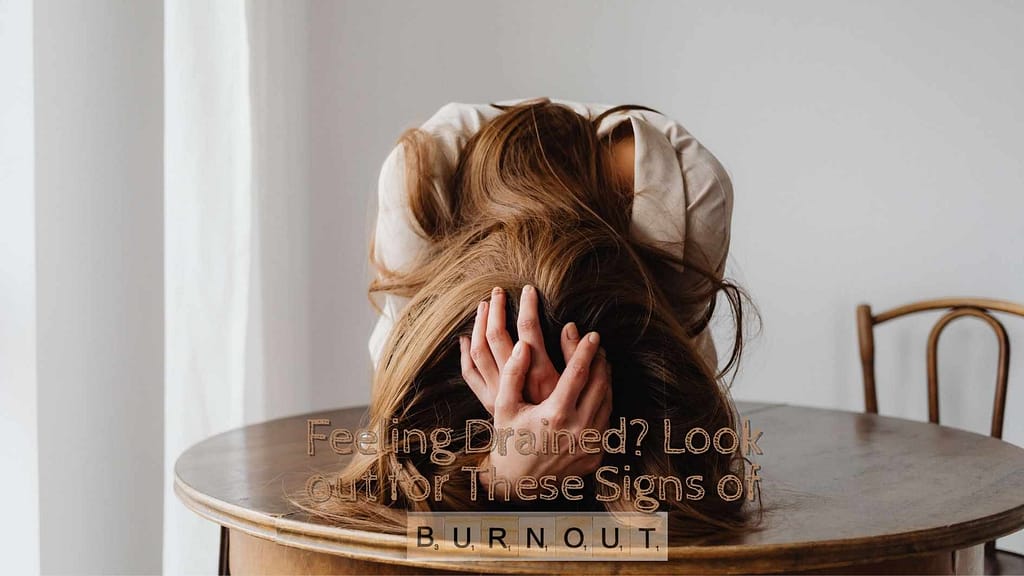Burnout is a state of mental, bodily, and emotional fatigue that can be caused by continuous and severe stress. We’ve all experienced those moments of exhaustion, when the world feels like it’s too much and we don’t have the energy to do anything. It’s a feeling that can be all too familiar, yet it is not the same as languishing in a state of laziness. Rather, it’s a phenomenon known as burnout, and it should not be taken lightly or ignored. Burnout is a serious issue that can have far-reaching implications if left untreated, leading to a downward spiral of stress, anxiety, and depression.
It can manifest itself in physical, mental, and emotional symptoms, making it difficult to manage day-to-day activities, from work to relationships. In order to properly address burnout, it’s important to be able to spot the signs. In this blog post, we’ll explore five unmistakable signs of burnout that are often mistaken for laziness. We will also discuss the distinctions between burnout and laziness so that you can better recognize and address burnout if and when it occurs, as well as the steps we can take to address it.
Here are 5 signs that you might be experiencing burnout, not laziness

One of the most obvious signs of burnout is a noticeable decrease in the thrill of formerly enjoyable activity. When we feel burnout we frequently will struggle to find joy and fulfillment in hobbies and things we enjoy doing. For example, someone who enjoys playing a musical instrument every day may find that they now can’t be bothered to pick it up. Or someone who used to enjoy going to work every day, may find themselves dreading going to work and feeling unmotivated to engage in their work activities.
Chronic fatigue is a dragging, oppressive feeling that can take a heavy toll on your mind and body. Chronic fatigue can be a symptom of burnout, where an individual may feel tired or exhausted all the time, even after getting enough sleep. It’s a condition that can creep up on you gradually, subtly slipping away your energy until all you want to do is curl up under the covers. It can be frustrating, making you feel like you can’t do anything and giving you no drive to do even the simplest things.
For example, someone who usually wakes up feeling refreshed after a full night’s sleep may suddenly find themselves feeling exhausted all day, struggling to keep their eyes open.
This can make it hard to do even the most ordinary things every day, and can lead to feelings of apathy and hopelessness.
In this situation, it’s important to take action to deal with these feelings. Get some professional help, taking care of yourself, or finding healthy ways to talk about and work through your feelings. It is not, however, an easy journey, and it can be difficult to remain strong, but with the right resources and support, it is possible to move past these feelings and reclaim a sense of hope and joy in life.
Increased absenteeism is an often-overlooked sign of burnout, one that can have a profound effect on an individual’s wellbeing. Whether it comes in the form of taking more sick days, calling out of work more often, it can serve as an indicator that someone is feeling overwhelmed and unable to engage in their normal routine.
For example, someone who previously had an impeccable attendance record, who never used to take a single day off, may suddenly find themselves calling in sick multiple times a week, with no clear explanation as to why.
This change in habit is often indicative of something larger – a sign that something is wrong, that something needs to be addressed.
It is important to listen to the signals your body and mind are sending you and take some time to rest and recharge. Taking care of your mental health should always be your top priority, so if you find yourself in this situation, reach out for help and take the necessary steps to improve your wellbeing. In addition, taking time away from work, as a means of self-care can be essential for combating burnout. It can provide an individual with the opportunity to reset and return with a refreshed outlook, ultimately helping to alleviate the stress and fatigue that come with burnout.
Decreased work performance is another telltale sign of burnout. This can manifest itself in a multitude of ways, such as an inability to meet deadlines, a marked decline in productivity, an increase in mistakes, and a notable drop in the quality of the produced work. It can be difficult to spot at first, but when it becomes an issue, it can be a great detriment to any workplace, as it can cause serious issues with morale and teamwork.
For example, an individual who is typically a model of punctuality and always produces work of the highest quality may find themselves missing deadlines, turning in work that is far from acceptable, or making an abundance of errors that would otherwise be out of character.
Such a stark contrast from the individual’s typical behavior is a testament to the far-reaching effects of exhaustion and its ability to affect even the most disciplined individual. This sudden shift in behavior may be an indication of a larger issue brewing beneath the surface, one that cannot be ignored or overlooked. Consequently, the individual should take the time to assess the source of their distress, and make proactive decisions towards their wellbeing. They should also reach out to trusted friends, family, and professionals, as having a support system is invaluable.
This can be a harrowing sign of burnout, and the physical and mental consequences can have a devastating impact on a person’s life. Headaches, insomnia, and an increased risk of heart disease can all be telltale signs of burnout, providing a clear signal that something is amiss.
For example, someone who has never had any problems sleeping peacefully through the night may suddenly find themselves tossing and turning in bed, unable to get a good night’s rest, or even plagued with nightmares.
Or, someone who has never had any headaches before in their life may find themselves battling frequent headaches, leading to dizziness, nausea, and other unpleasant symptoms.
It’s normal to feel overwhelmed and worried when these changes occur, but it’s important to remember that there are ways to manage them and seek help if needed. When burnout is left unchecked, the consequences can become more severe, leading to a state of profound exhaustion, a weakened immune system, and even depression. It’s important to be mindful of the potential dangers of burnout, and to take the necessary steps to ensure physical and mental wellbeing. Various treatments, such as cognitive-behavioral therapy, relaxation techniques, and medications, can help bring symptom relief and improved sleep quality. Seeking help from a doctor or mental health professional is an important step in understanding and managing one
Burnout can be a depleting and tiring experience, leaving you feeling emotionally and physically run down. Spotting the indicators can be tricky, and it’s not always easy to come up with a way to beat it. Therefore, if you or someone you know may be experiencing mental or emotional burnout, please do not delay in getting in touch with a mental healthcare expert and having a conversation with them about it as soon as possible.


